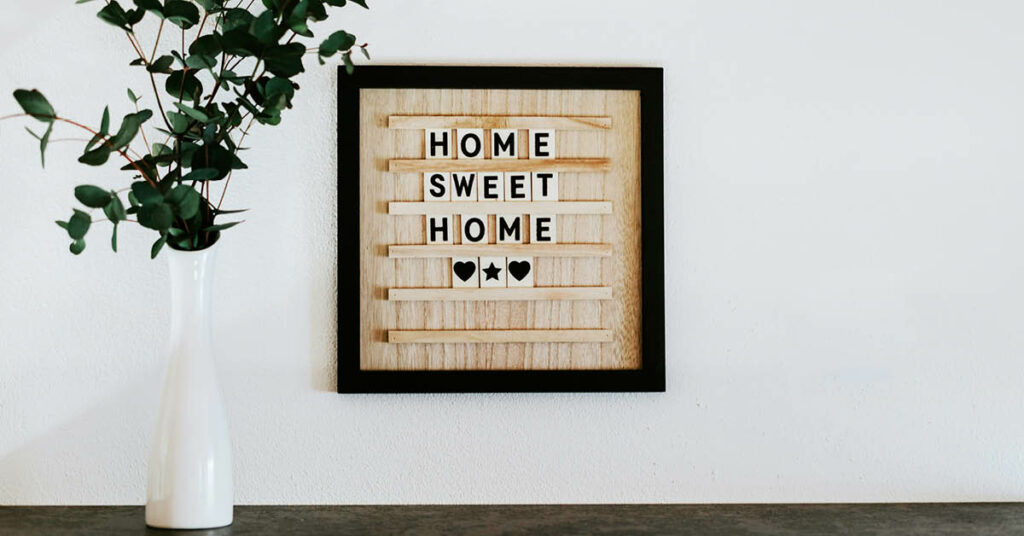Deciding to buy your first home is exciting. Saving the deposit less so. The cost of buying a property has risen, and the cost of running it…..well you can make a decent guess at how that’s panning out. But saving the deposit for your first home is within the reach of many and with the steps shared in this article, you’ll be in a better position in no time.
The cost of buying a home
If we look at the data in real terms, the Income to House Price Ratio has more than doubled from 1980 to 2023. To you and I this means that taking into account income levels and the cost of buying a property, it’s over twice as difficult to buy a home today than it was in 1980. If your parents say anything to the contrary, show them this article.
But let’s be honest for just a second. Buying your first home can feel like a mammoth task because, for many people, it is. Buying a property costs money and running and maintaining a home costs even more. And if you’ve never had to do so before, then be prepared for a huge chunk of your salary to disappear each month.
That’s enough of the negative chat for one article. If we plan for it and take action, daily, there are many ways to help you get on the property ladder quicker and easier.
Read More: 5 money tips for your 20s and 30s
What deposit do I need as a first-time home buyer?
Using data from the official Northern Ireland house price index, the average house price was £179,530 for the third quarter of 2023. Let’s say £180,000 for easy maths. Generally speaking, with a first-time buyer mortgage, you’ll need a 5% or 10% deposit saved depending on the mortgage provider’s lending requirements.
According to Aisling Brady from Mortgage Solutions Belfast, some mortgage providers will offer a 100% mortgage to first-time buyers, however, with any deposit or a larger deposit, you can avail of better interest rates.
Save as big a deposit as possible, because the more you can save and put towards your mortgage, the less interest you’ll need to pay overall.
Back in 2007, 100% mortgages were popular and worked well at helping people get on the property ladder, but as house prices fell over the next few years, many people were trapped in negative equity homes. Some still are.
If we use the average house price as a guide, at 5% you’ll need a £9,000 deposit and at 10% you’ll need £18,000. Depending on your circumstances, this may seem like a little or a lot, but if you don’t start saving for your deposit, you’ll never be able to buy your first home.
4 top tips to save for your deposit faster
Who enjoys saving? No one! Giving up anything for a short time is hard, but with many deposits taking months and even years to save, this goal can feel distant and unachievable. Yet with just a few small changes to your spending habits, a plan and the determination to stick with it, your first home is within reach. It’s even easier if you consider these 4 top tips.
- Affordability
- Setting a budget
- Increasing your income
- Lifetime ISA and other accounts
Can you afford a home?
Before saving for a deposit, one of the questions you must answer is: “can you afford a home?” And to be completely clear, affordability is not what the mortgage advisor says you can borrow, but what you can afford to pay toward owning and running a home each month.
Usually, mortgage borrowing limits are 3-4.5x your annual income, but this does vary by lender, so double-check with an independent mortgage advisor to confirm how much you can borrow. Assuming you earn £30,000 a year and can get a mortgage of 4.5 times this amount, you could borrow up to £135,000.
Buying a home with a partner with a joint mortgage is calculated similarly to a single applicant. The sole difference is that both incomes would be taken into account. Again check with an independent mortgage advisor to confirm the options available to you, in your circumstances.
It’s tempting to meet with a mortgage advisor and then immediately hop on the property portals, looking at the top end of your budget. And this would be wrong, though we all do it. Because what mortgage we can get and what we can afford are two different things.
Let’s assume you and your partner are each earning £30,000. And you can get a joint mortgage with a combined value of £270,000. Whoop. But if we assume a 4.89% interest rate, which is standard in today’s market, the monthly repayments would be £1,561.
Hands up if you have an extra £780.50 each month to pay for half of the mortgage.
In fact, as someone on £30,000 a year, after tax and national insurance contributions, your take-home pay is £2,064.25. Considering this, the mortgage payment alone at this level would be 38% of your income. For some people, this might already feel out of their reach. Remember this is your first home, buy with your head and buy what you can afford.
Setting a budget
Right now, you will rightly assume that saving for your deposit is the most important factor. When you eventually buy the home, this flips as you’ll have significant running costs that need to be considered now to ensure you can afford them when needed.
Let’s stop for just a second. Before even thinking about our deposit, we need to consider the amount of money it will cost to run the home
A great exercise to consider how much you’ll need is to create a future household budget.
List out all your expected costs such as:
- Mortgage
- Food & Drink
- Insurance
- Heating
- Electricity
- Rates
After calculating the expected cost of running your new home, set your current budget to a level that allows you to consistently save that amount. Live like you’re already paying each of those costs and each month while you are saving towards the deposit, put that money into a savings account until you have enough.
Now I can already feel the furious typing stamping on the keyboard from those of you who are renting currently. And I empathise with you fully. Many of the costs of running a household are your costs already and unless you can significantly reduce or remove them altogether, your deposit saving progress will be slower, possibly much so.
However, the process is the same. Live like you own the home now and put any surplus money from your current budget into your deposit savings.
Budgeting sucks and you’ll have to make choices every time you go to tap a payment. Do you want that outfit/coffee/holiday more than you want a home of your own? No one but you can answer this and the choices you make daily will directly affect how quickly you can save your deposit.
Read More: How to Budget Money
Yes, it’s cliche to say ditch the daily coffee, but these smaller transactions and subscriptions do add up. A £4 coffee each weekday is £20 a week or £80 a month. If you spend £30 a week going out, there’s another £120 a month.
Right now the cost of living has never been higher and saving has never been harder for many across the country. But if you are ruthless with your budget and cut out any spending you value less than your new home, you are on the right track.
Increasing your income
Many of you saving for your first home will be in the early stages of your career and often this means that your earning power, which generally grows with experience is lower. But if you’re saving for your deposit and your budget doesn’t stretch as far as you need it to, you’ll need to figure out a way to increase your income or reduce your spending.
This doesn’t mean you need to start a business or side hustle, though for many this is a great option. An equally valid option is to get a temporary second or part-time job. Not only will your income increase, but your experience and knowledge will grow at a much faster rate.
Watch Now: How to start a business or side hustle
Where to put your savings
The next and probably most important step is to understand where to put your savings, while you’re building up the deposit for your home. Now I’m a big fan of investing, but this is the one time that I’ll steer you clear of doing so.
The stock market fluctuates daily and on any given day it could be up or down. While over the long term we expect our investment to increase, in a recession or a market downturn, your investments could be significantly lower than the amount you put in. This could happen when we need it most i.e. we’ve put an offer on our first home.
Generally speaking home deposits should be saved in an instantly accessible savings account.
Cash savings accounts
The flipside of higher interest rates pushing up mortgage and loan costs is that our savings accounts usually attract higher interest rates as well. Today you can achieve anywhere between 4–5% on any money you have saved with most online and high street banks.
Using a cash savings account, your money will get a guaranteed return and your savings will be instantly available to you when you need them.
Get a 25% boost on your savings with a Lifetime ISA
Rarely is there such a thing as free money, but the Lifetime ISA is the exception. If you’re over 18 and under 40 years of age, you can open a Lifetime ISA. For every pound you contribute up to the maximum of £4,000 per year, the government will give you a 25% bonus on the total amount you pay.
That means if you pay the maximum amount of £4,000 between 6th April to the 5th April each year, you’ll receive a tax-free bonus of £1,000 automatically into the same account. Usually, this is paid at the end of the month to match the transactions you’ve made.
What’s important here, is that the Lifetime ISA was specifically set up to help you buy your first home or save for later life.
You can open one Lifetime ISA per person, per tax year. If you and a partner are planning to buy a home together, you are both first-time buyers and both meet the eligibility criteria, you can each open and save money into your own Lifetime ISA account.
As long as you have opened an account before you turn 40, you can pay into a Lifetime ISA up to the day before you turn 50.
Buying your first home is a massive milestone, but one that is achievable with the right mindset and approach. By getting a firm grasp on the true costs of home ownership, creating a realistic budget, exploring options to boost your income if needed, and taking advantage of government schemes like the Lifetime ISA, you can make steady progress towards your deposit savings. It will take discipline, determination, and some sacrifices along the way, but the reward of finally getting the keys to your own place will make it all worthwhile. Stay focused, keep chipping away, and before you know it, you’ll be moving into your dream first home.
Follow Connor from foundered.co.uk on Instagram and Youtube for daily money-saving tips, financial education and more.


